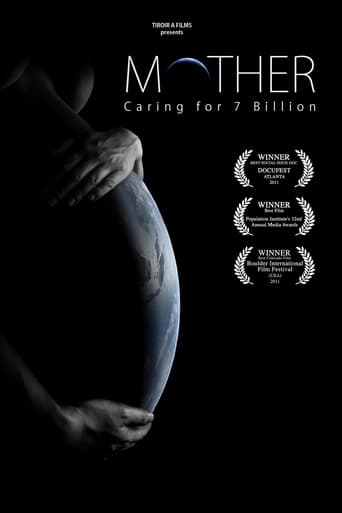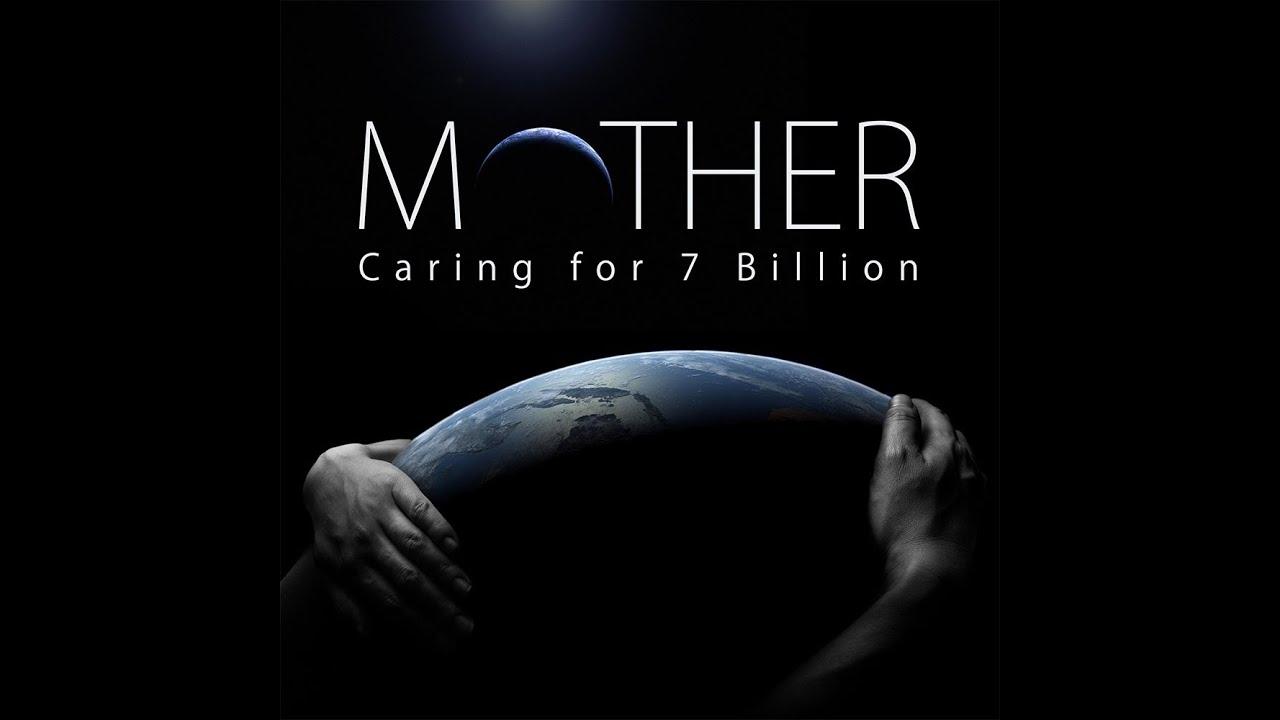Izzy Fallangy
Finally, a film which connects the dots between women's rights - populations growth - growth of environmental degradation and poverty. It breaks the 'taboo' of the real main factors behind ecological degradation and the ongoing (and growing!) abject poverty for let's not forget: 1 in 7 people today! Real main factors people have either never connected together, or are choosing denial. Seriously, since we are not TODAY managing and sharing our limited resources properly, how on earth do we expect we will all 'magically' manage and share better when the number of people in need have doubled by 2050 in some places? It's just not realistic, whether we like it or not, and we need to take responsibility NOW. Please watch and show to your local media and political representatives; family, friends and colleagues!
Maria Fotopoulos
"Population growth and human consumption are the major factors in our ongoing environmental crisis."We've reached the unfortunate state in America of polarization on most issues. Polls conducted on many topics bear that out. The issue of overpopulation certainly fits in this category – if it's talked about at all. Add to this that it's nearly impossible to talk about overpopulation without also discussing immigration, since immigration drives most of the population growth in the United States. And immigration has been nothing but super-polarized.So it's most refreshing to see the topic of overpopulation addressed in a very accessible, very human manner with an extreme amount of pathos in a way that offers a positive, hopeful message. That's what the documentary film, "Mother – Caring for 7 Billion," does.The filmmakers, who have made other environmental films, said they made "Mother" because they couldn't "make another film on sustainability without dealing with the subject of human population. Too much is at stake to keep ignoring that issue."It's misunderstood and highly stigmatized, and we felt the need to produce a comprehensive film to help bring the issue back into the public conversation. It doesn't have to be the elephant in the room anymore.""Mother" does an excellent job of telling the story of population growth. In a visually and verbally effective manner at film opening, we see that for hundreds of thousands of years, women probably had four to six children, with half dying before they could reproduce. So for most of history, most women had two children who lived – or we'd have had a population explosion before now.With the advent of fixed agriculture and, more recently, proper sanitation, vaccination, famine relief, basic levels of health care and the addition of fossil fuels to agricultural processes to increase yield have come the "unintended consequence of our best intentions" – vast human population. Just even from the first Earth Day in 1970, when world population was 3.7 billion, growth has rocketed on to the current population of more than 7 billion.The creators of the film make terrific use of numerous experts respected in their fields. Among the many great voices are environmental writer John Feeney; Paul Ehrlich, the population studies professor at Stanford University who early sounded the overpopulation alarm; Mathis Wackernagel, economist and co-creator of the environmental footprint; Lyuba Zarsky, economist and associate professor at the Monterey Institute of International Studies and Bill Ryerson, president of the Population Media Center.Enhancing the narrative are the very personal and moving stories of two women. One is an American, Beth Osnes, who comes from a family of ten children. She shares her parents' story, and how she and her husband, who had strong views on family size, chose to have two children and adopt one child. The other story is that of Zinet, the oldest girl in an Ethiopian family of 12 living in poverty. At an early age, she refused to marry; instead choosing school, which helped break a cycle of poverty and early pregnancy. In the film, Osnes travels to Ethiopia and meets Zinet, learning her story first-hand.The information, presented so brilliantly in "Mother," is so clear on how empowering women can make all the difference in how our world evolves. According to the United Nations Population Fund, if women's needs were met for family planning, population growth would be reduced by 28 percent, plus lives would be saved and advances would be made in human rights.Dr. Martha Campbell, an international public health and reproductive rights policy expert, says in the film, "It's difficult or impossible to achieve economic development as long as birth rates are very high in the least developed countries – education and health cannot keep up, and poverty goes right along with this." And Esraa Bani of Population Action International says, "If you think that this is an isolated problem, and it's only Africa's problem, think again." (Africa has one of the highest fertility rates in the world.) The loss of land around the world to commercial interests (thus pushing out local farmers), increasing food prices due to growing markets and increasing demand, and climate change are just three reasons (three very big reasons) the filmmakers cite for why everyone should be concerned about overpopulation.One of the most powerful commentaries in the film comes from Rev. Peter S. Sawtell, executive director for Eco-Justice Ministries. He says, "Be fruitful and multiply and fill the earth and subdue it. It's time for us to recognize that that be one Biblical commandment where you can say, 'Check, we've done that
what else should we do?' I don't see how we can look at the devastation that's happening to the planet and the poor quality of life that many people have and still say that basic levels of birth control and family planning are inappropriate. I find that a morally very confusing stance."If there's a film that can break through the polarization on the topic of overpopulation, "Mother" may be it!
rmaskell-459-841435
In 1970, world population was 3.7 billion which was then regarded as a major contributor to the global environmental crisis. By 2011, world population has risen to 6.8 billion and technology has proved to be a double-edged sword: on one hand, increasing life expectancy, food and goods production; on the other, resulting in unsustainable population growth with concomitant major problems for humanity's continued existence. Infrastructure in most countries has failed to keep pace with the growth being relentlessly promoted by various pressure groups, and in some countries, aspirational middle classes that previously did not exist, all wishing to live at the massively unsustainable consumption level of the United States, have been created.Empowerment and education of women is seen as the primary solution to this impending disaster. Despite advances in contraceptive methods, many pregnancies are unplanned even in advanced societies. However, population growth is greatest in patriarchal societies where women are uneducated and disempowered. If fertility rates can be reduced and the present insatiable urge for growth be curbed, the concepts of Mother Earth and women as agents of global survival are twinned.
revwin-457-2744
This film reveals the devastating environmental stresses caused by a large and growing world population. It shows that this is not just a problem for "others" to solve. Over-consumption is also addressed effectively in the film. Respected economist Mathis Wackernagel points out that continuing consumption growth "...just doesn't make sense mathematically." Women's empowerment and responsible family planning decisions are emphasized. The film observes that we must convert our conquering mindset into a nurturing one.The film is appropriate for high school and college students. A shorter version, perhaps 30 minutes, would be useful for such audiences, and would allow for discussion in a 50 minute class.


 AD
AD



